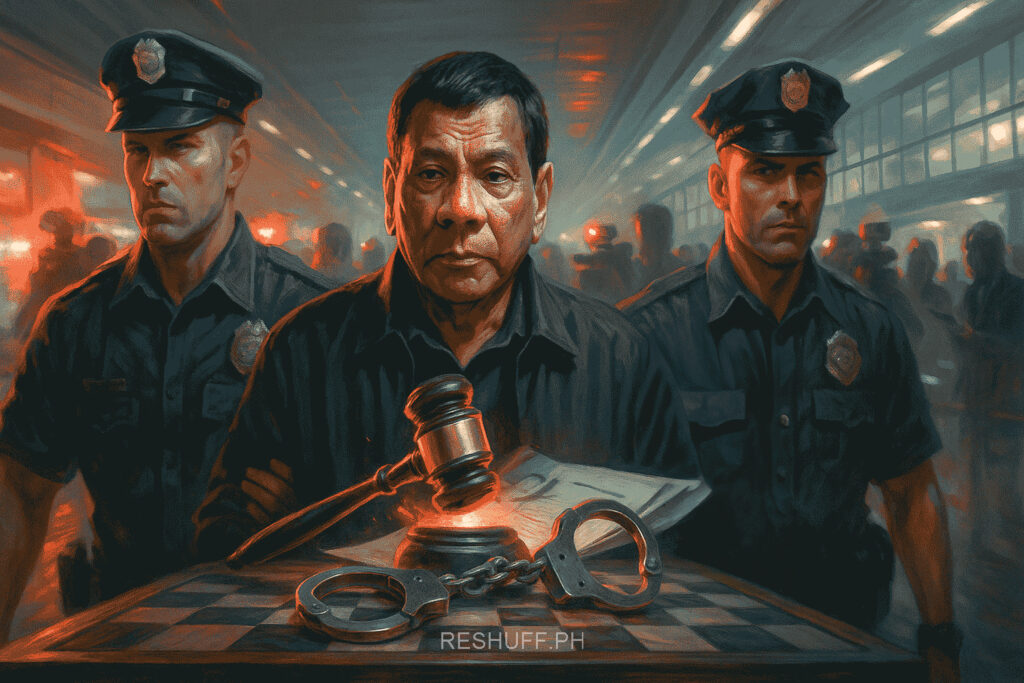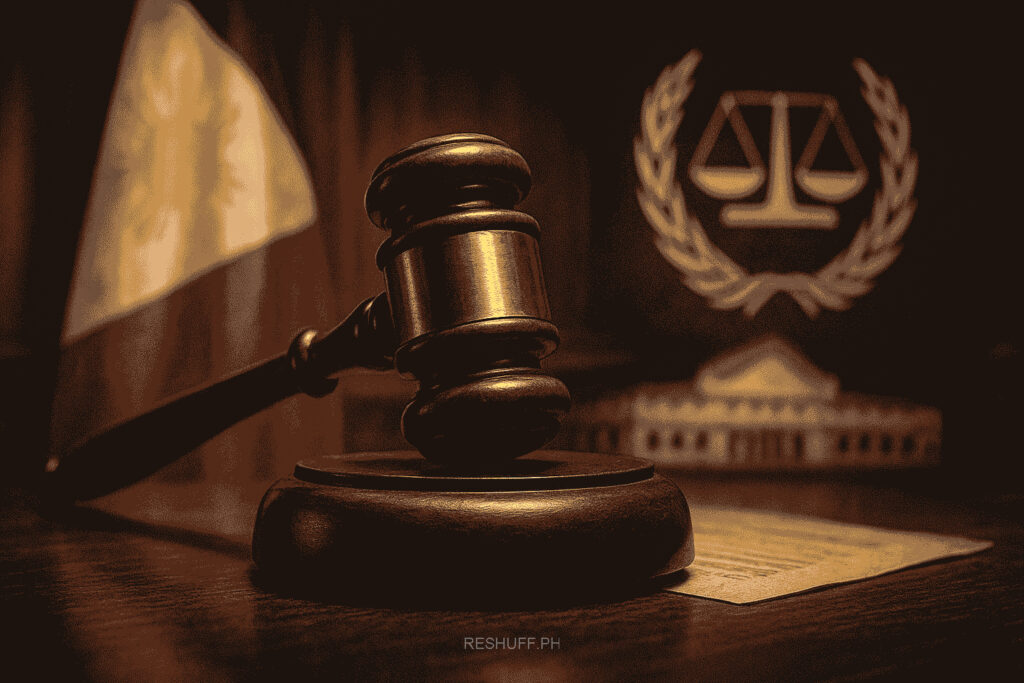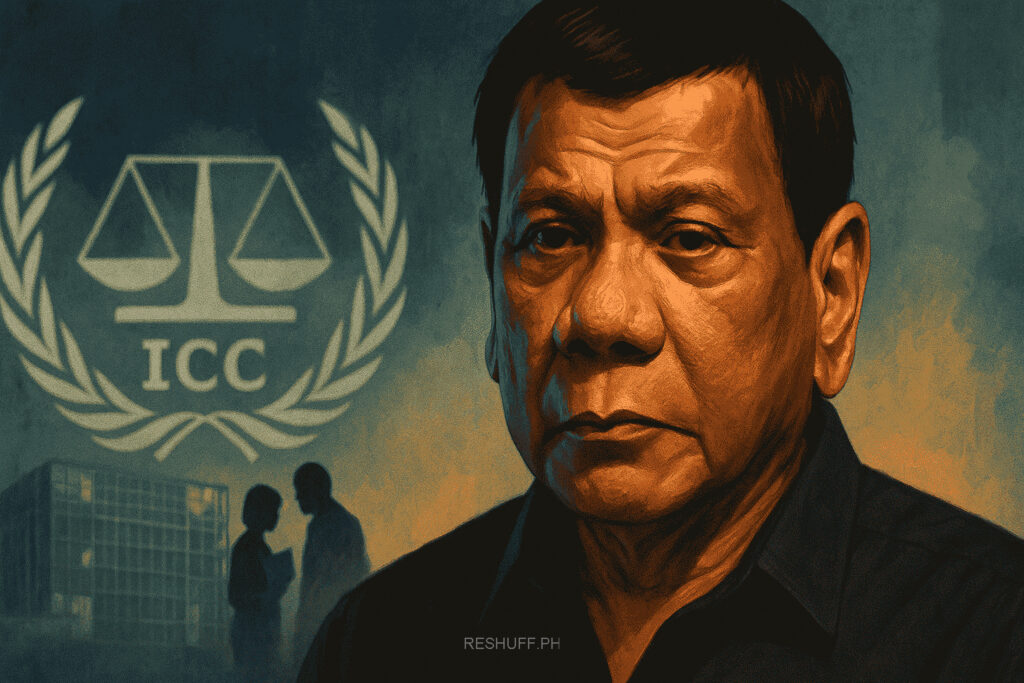The halls of power in Manila rumbled this week as five high-ranking Filipino officials were ordered to defend themselves against serious allegations. The Ombudsman’s order came like a thunderclap after former President Rodrigo Duterte was whisked away to face justice abroad-leaving government officials to explain how and why it happened.
Officials Given 10 Days to Respond to Serious Charges
The Office of the Ombudsman has ordered five top government officials to respond to a complaint about former President Duterte’s arrest and transfer to the International Criminal Court (ICC)1. The officials must now answer for their actions within just 10 days or face the consequences.
The officials named in the order include:
- Justice Secretary Jesus Crispin Remulla
- Interior Secretary Jonvic Remulla
- Philippine National Police (PNP) chief Gen. Rommel Marbil
- PNP Criminal Investigation and Detection Group chief Nicolas Torre III
- Special Envoy for Transnational Crimes Markus Lacanilao
Senator Imee Marcos’ Committee on Foreign Relations filed the complaint after their probe into Duterte’s controversial arrest. The timing could not be more tense, as Duterte’s transfer to The Hague has sent shockwaves across the country.
“We uncovered acts by high-ranking government officials which very likely constitute criminal and administrative offenses,” Senator Marcos stated about her panel’s findings.
Charges Against Officials Reveal Serious Allegations
The five officials face a storm of accusations. Justice Secretary Remulla stands accused of “usurpation of judicial functions” and “Grave Misconduct”1. His brother, Interior Secretary Jonvic Remulla, faces allegations of violating anti-graft laws and Arbitrary Detention1.
Police officials aren’t spared either. PNP chief Marbil must answer to Arbitrary Detention charges, while CIDG chief Torre faces additional accusations of Grave Threats1. These aren’t light charges-they strike at the heart of proper legal procedure.
For families of drug war victims, these developments bring mixed emotions. “I was astonished and felt as though I had been revived because our struggle is finally yielding results,” said Jerica Ann Pico, whose husband was killed during the anti-drug campaign9.
Duterte’s Arrest: A Historic Moment
The streets of Manila fell silent on March 11, 2025, when former President Duterte was arrested on an ICC warrant8. The sound of handcuffs clicking shut marked a historic moment-Duterte could become the first former Asian head of state to face trial at the ICC9.
Torre admitted during Senate hearings that force was needed during the arrest since Duterte’s camp would not go willingly. “We tried convincing them the whole day,” he testified, painting a picture of rising tension as authorities closed in.
The transfer to The Hague stunned the nation. Special Envoy Lacanilao later found himself in hot water, cited for contempt after repeatedly claiming he didn’t know if Duterte was brought before a local court before being flown to the Netherlands1.
The Drug War’s Bloody Legacy
Duterte’s “war on drugs” left a trail of pain across the Philippines. Official police records show more than 6,000 people died during anti-drug operations9. But human rights groups paint a far grimmer picture-they believe the real number exceeds 30,000 deaths8.
During a House hearing last November, Duterte made shocking admissions. He disclosed killing “six or seven people” as Davao City mayor, saying he roamed the streets “waiting for the chance to kill criminals”1. He even admitted to planting evidence on suspects.
“At least Duterte will only face imprisonment. His family will still have the chance to see him,” said Pico, fighting back tears. “Unlike us, who have lost our loved ones, we will never have the opportunity to see them again”9.
What Happens Next?
Duterte now sits in The Hague, where justice moves with deliberate steps. He attended his pre-trial hearing via video call on March 141. Meanwhile, in Manila, the officials named in the Ombudsman’s order must quickly prepare their defense.
The clock ticks loudly for the five officials. “Failure to file Counter-Affidavit within the aforesaid period shall be deemed as waiver of respondents’ right to submit controverting evidence,” warns the Ombudsman’s order1.
This case will test the Philippines’ commitment to justice. For many, like Emily Soriano who lost her son in the drug war, the quest for accountability shouldn’t stop with Duterte. “They should be alongside Duterte; it shouldn’t be just him facing accountability,” she said9.
As this drama unfolds in both Manila and The Hague, the world watches. The outcome could change how leaders think about their actions while in power. For a nation still healing from years of violence, each new development brings both pain and hope.
Reshuff PH
Latest News In The Philippines brought to you by Reshuff PH



